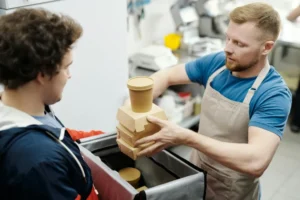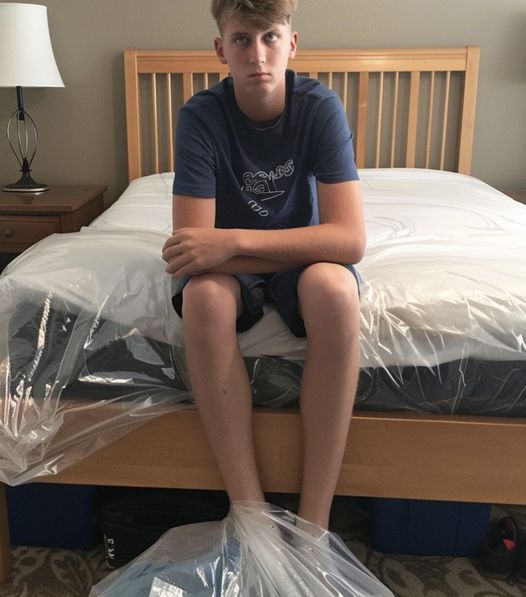At a family dinner, tensions flared when my mother demanded I return my new mattress, which I had saved for months to buy. I’m Jason, 18, and had worked hard to purchase this bed for my chronic back pain. My mother argued that the money should be used for my half-sister Ashley’s car instead, which led to an explosive confrontation.
“I bought this mattress with my own money!” I argued. “I need it for my back.” Ashley, seated at the table, whined, “Why does he get a mattress when I need a car?” The atmosphere was charged with frustration and unfairness.
Granddad, who had been silent until then, intervened decisively. “Michelle, this isn’t right. Jason has worked hard for this bed. Your treatment of him is unacceptable.” His words were firm, and the room went silent.
The situation took a surprising turn when Granddad announced, “We were going to gift you an apartment, Michelle, but we’ve decided to give it to Jason instead.” Shocked, I listened as my mother protested, “He’s just a kid. He doesn’t need an apartment.”

A teen boy working as a food delivery driver | Source: Pexels
Grandma chimed in, “He needs a place where he feels valued. You’ve neglected him for too long.” The room was heavy with realization as I accepted the keys to a fully furnished apartment from my grandparents, feeling a mix of disbelief and gratitude.
The drive to my new apartment was surreal. It was a small but cozy place, a significant upgrade from what I had known. My grandparents frequently visited, providing support and care that made me feel truly seen for the first time.
The family’s reaction was swift. Calls and texts poured in, criticizing my parents for their neglect. Even the foster kids, Natasha and Everett, were visibly upset. I was overwhelmed by their concern, realizing the stark contrast in how I had been treated compared to my half-sister.
My mother, grappling with guilt and shame, eventually came to visit me with a homemade pie as a peace offering. “Jason, I’m sorry,” she said. “I’ve been so focused on everything else that I didn’t see how much you were struggling.”
“Thanks for the pie, Mom,” I replied. It wasn’t a complete resolution, but it was a start. As time went on, my mother made efforts to change her behavior, spending more time with the foster kids and encouraging Ashley to contribute to her car fund.
While rebuilding trust and relationships would take time, I began to feel hopeful about the future. I had a new space where I could focus on my well-being, and for the first time in a long time, I felt appreciated and valued.

